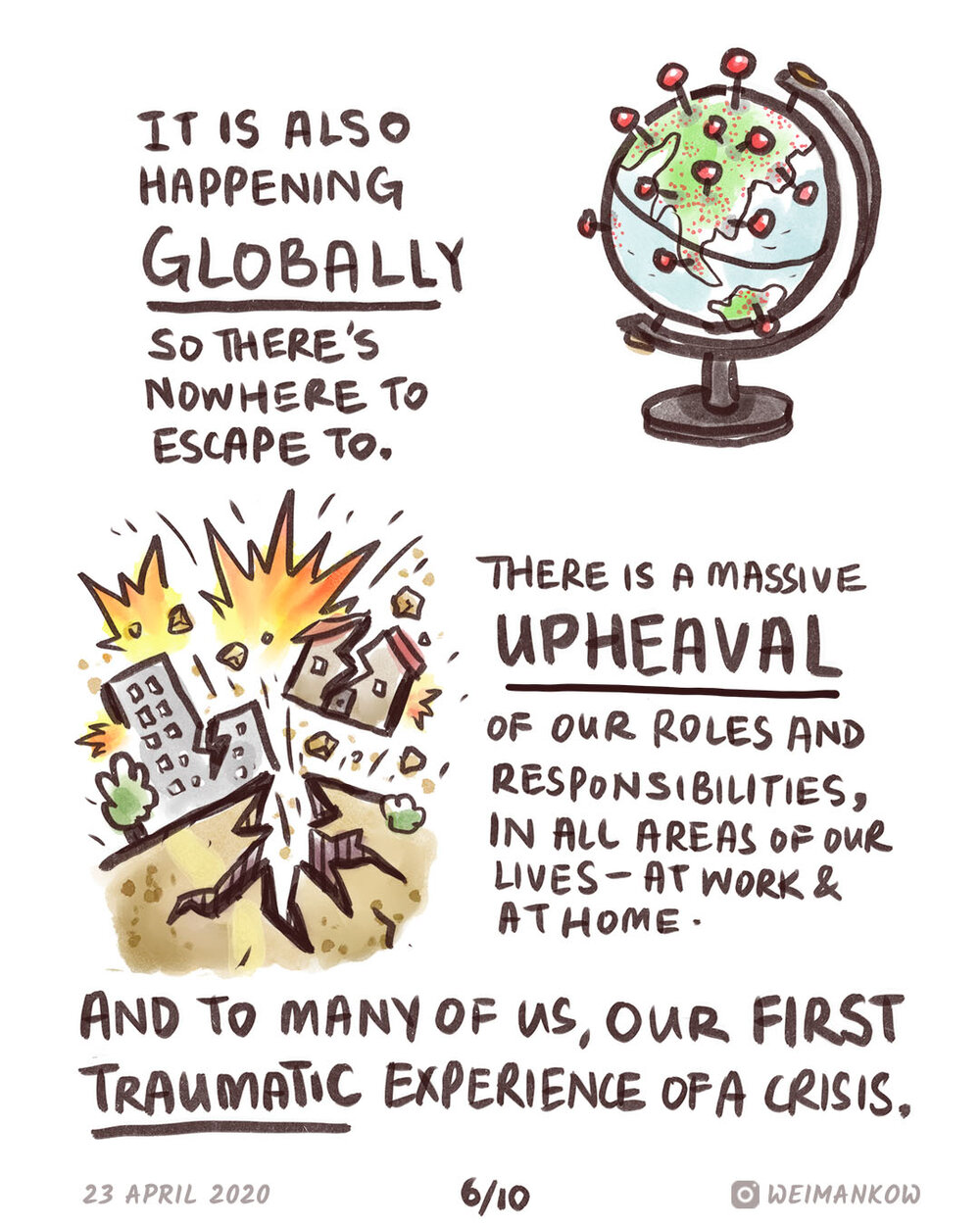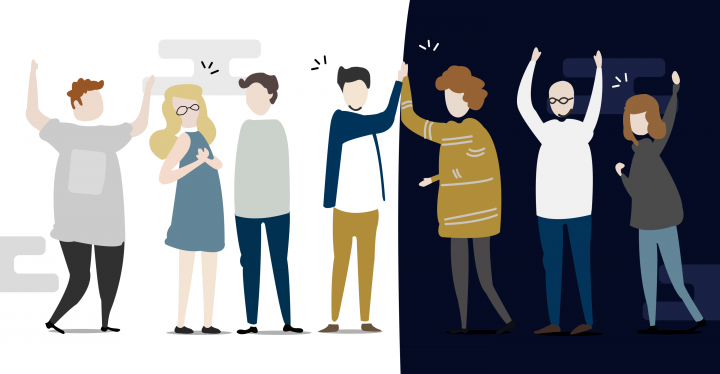Beyond Breathing
Exploring the Long-Term Impact of COVID-19
We are all too aware of how the pandemic remains a threat to worldwide mental health, in addition to the physical effects. However, it is likely that the pandemic will have long-lasting effects that will continue even after the vaccine is available to the general population. It remains to be seen just how far these effects will go, although we will explore several possibilities.
Even though we can anticipate possible lasting consequences, it’s not clear the exact influence of any symptom and for how long each individual patient will be impacted. Similar to the potential physical consequences, we can expect a long-term impact on mental health from physiological and psychological sources.
Physical Impact of the Virus
The systemic impact of SARS-COV-2 is varied and complex, appearing to behave like an autoimmune disease. It seems to influence different organs and generate organ dysfunction, especially in the lungs, the heart, and the brain. (del Rio, Collins, & Malani, 2020). We’ll look at the physiological and mental health implications of the brain momentarily, but let’s start with the heart and lungs.
Let us start with the heart: Severe acute COVID-19 has contributed to myocardial injury and thromboembolic diseases, leading cardiac arrhythmias and myocardial inflammation. This can contribute to long term heart disease, including previously healthy patients.
As for the lungs, COVID has been best known for its contribution to pulmonary dysfunction, (e.g.: fibrosis reducing lung function). It is likely that this impact can make people more vulnerable to heart and lung disease and other conditions in the future, especially in the tragic event if the damage proves to be irreversible (del Rio, Collins, & Malani, 2020).
This means that COVID might have a lasting effect on students physical health and make them more vulnerable to developing other conditions in the future, according to preliminary evidence.
The Neurological Impact of COVID-19
In addition to mental health concerns which will be discussed momentarily, COVID appears to also lead to neurological problems. COVID-19 penetrates brain tissue through the blood and/or the olfactory nerve, leading to the notorious losses of smell/taste, headache, vertigo, and changes in taste perception. While these symptoms seem innocuous, they are neurological symptoms and we do not yet understand what the long term impact will be of these (or any) COVID-19 symptoms.

Like other illnesses belonging to the same viral family, there may be lasting neurological consequences. These neurological symptoms of SARS-COV-2 seem to contribute to the risk of stroke and, in some cases, can lead to encephalitis, seizures, mood swings, psychosis and brain fog for months after the onset of the illness. (del Rio, Collins, & Malani, 2020)
Neurological symptoms include persistent worsening anxiety and depression, psychosis, brain fog and there is still information coming out about the long term neurological impact.
The Connection Between Neurological and Mental Health Symptoms
The impact of COVID-19 in the brain can physiologically worsen mental health and can potentially play a role in changes in mood, emotional well-being, and mental illness long term because of these physiological changes. Anxiety, depression, and insomnia were the most common mental health problems developed after recovery from COVID-19. There seems to be an increased risk of first-time reports of dementia as well.
After three months of testing positive for COVID-19, one in five survivors received a first-time diagnosis of anxiety, depression, and insomnia, twice as many in comparison to those who had other similar conditions. It seems likely that COVID impacts the nervous system, increasing the risk of other conditions later on, but there is also a high level of additional psychological stressors due to the pandemic, the illness, and the resulting global situation (Kelland, 2020).
Not Only the Infected Will Be Affected By the Toll of the Pandemic.
Even without a positive diagnosis, global mental illness is worsened around the globe are facing a variety of psychosocial stressors. These include quarantine and social isolation, fear and vulnerability, exposure to negative and frightening news, financial difficulties, not to mention grieving the loss of family members and friends (Kontoangelos, Economou, & Papageorgiou, 2020).
The pandemic has contributed to high rates of psychiatric symptoms and mental health disorders, involving depression, anxiety, post-traumatic stress disorder, and others. Individuals with preexisting mental health conditions may be especially vulnerable to psychiatric and psychological symptoms but even people without mental illness have developed symptoms of it, with a positive or negative diagnosis. (Kontoangelos, Economou, & Papageorgiou, 2020).
The effects of COVID are not just applicable to people who have suffered from it or faced it among their families or friends. Grieving the loss of normalcy has had a profound societal impact. People have lost their jobs or businesses and have faced situations of isolation, a loss of their usual daily lives. (Kontoangelos, Economou, & Papageorgiou, 2020).
Children can be impacted more dramatically than resilient adults by high levels of stress and are more prone to fear and worry with any disruption in their routines. They might also be absorbing the effects of stress that their parents are experiencing, which can have a direct effect on children’s well-being. This crisis will continue to impact families for years to come.
Existing problems at home have intensified, worsening mental health concerns for all members of families. School closures creating dire childcare needs, diabolical media stories that children might especially not know how to interpret, and family stress can also make children vulnerable to psychological issues. The lockdown has also contributed to an increase in domestic violence (Kontoangelos, Economou, & Papageorgiou, 2020). At the moment, many people are struggling financially, because their jobs have changed, they have lost their work, or they have been unable to find new employment (MarketsAndMarkets, 2020). Federal agencies and experts agree that the rise in mental health issues will be a problem for some time, not just during the pandemic but after. Levels of stress and distress specifically have risen a lot in relation to last year, and this can have long-lasting impacts on society (MarketsAndMarkets, 2020).
There will be a lot of demand for SEL support for students in the next months and years, especially for services that are accessible for people of different backgrounds and socioeconomic status. Students especially will need more support dealing with higher rates of emotional difficulties and challenges that might not get resolved quickly (MarketsAndMarkets, 2020).
Looking at the impact of Polio across a previous generations as well as the Spanish Flu indicates historical evidence to suggest that psychologically we will be dealing with the emotional consequences for indefinitely. Schools especially must account for the increased costs in our budgets for these services in years going forward.
Worldwide, we can expect to suffer post-traumatic stress disorder, both adults and children. Grieving loved ones, physiological impacts on the body and the mind and the resulting mental illness even for those who manage to stay healthy include the loneliness of the quarantine and isolation, and financial difficulties will be enormously challenging to navigate. Recovery will not be quick, and the emotional consequences of the coronavirus pandemic represent a serious concern and present a big challenge for SEL and mental health support services.
As educators especially, it’s important to prepare for the potential effects of the coronavirus and stay alert for signs of mental health issues, distress, and problems, especially among our most vulnerable populations.






